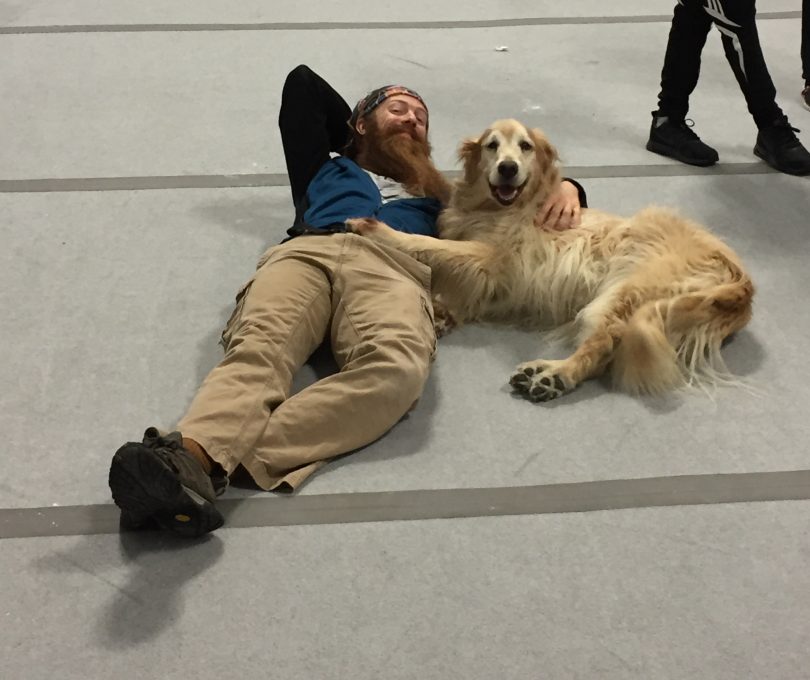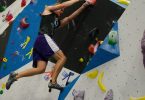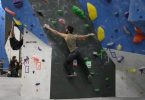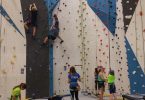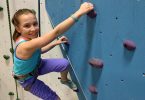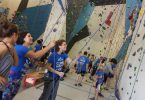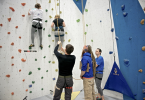Q&A with Ryan White, Head Coach and Program Manager at the Junction Climbing Centre:
Q: How did you discover rock climbing?
A: I was about 18 years old and a close friend took an outdoor leadership instructor course and was introduced to climbing there. When he returned home (London), he asked me if I’d be interested in trying climbing, as he needed a climbing partner. We went to East Park and I was instantly hooked. That summer I went out and purchased whatever gear I needed to climb outside and we went every chance we could get. I only wished I had been introduced to it earlier in life.
Q: When did you get into competitive climbing?
A: When I moved to Erin, Ontario, after attending university in Sudbury where I climbed at the (very small) bouldering room we had, I sought out a new climbing gym. I discovered the Grotto in Guelph and was introduced to the Tour de Bloc bouldering competition series. I had never competed or really knew much about climbing competitions. They were unlike any other kind of competitive sport I’d ever been a part of, and it opened up a whole new facet to a sport that I already loved.
Q: What is your coaching philosophy?
A: I coach youth (18 and under) right now, so my philosophy is focused on that niche. I find myself repeating my ‘order of importance,’ which is School First (smart kids make smart climbers) and Injury Prevention second (any injury will set you back). And then Training and Climbing come after that. One of my overriding principles is that ‘perfect practice makes perfect,’ which I picked up from a close friend who teaches violin. His logic was that simply practicing a lot won’t make you good if you are practicing something wrong. You’ll only get really good at doing that thing wrong. I also refuse to accept the word ‘can’t’. You need to shape your thinking in accepting that something is hard and then figuring out how you can succeed where you have failed in the past.
Q: Share one of your proudest coaching moments.
A: There are so many, I’m not sure how to pick. Usually it involves showing a kid something they’ve told me they ‘can’t’ do, and then proving to them that they can do it. One of my youngest on the team, who is very strong and talented but thought of herself as weak because she was often up against kids much older and taller, went to a competition for very young and inexperienced climbers. Her eyes were finally opened as to how strong she was when compared to other kids her age, and I have never seen her put in so much effort. As a competitive climber, I have seen her turn over many stones and discover strengths that she didn’t realize she had.
Q: What is your advice for new climbers?
A: Don’t overdo do it to start. Give your body time to heal and get stronger … Listen to your body and get to know the difference between pain and soreness. Too many new climbers injure themselves because they don’t give themselves adequate rest days … Pay attention to your feet, and use your legs to get your body up the wall; too many climbers hyper-focus on their hands and forget completely about their legs … Don’t get complacent. Climbing can obviously be dangerous, so take the time to learn how to do it safely and never let your ego or perceived expert experience level interfere with learning new and potentially safer ways to climb.
Story by Junction Climbing Centre

